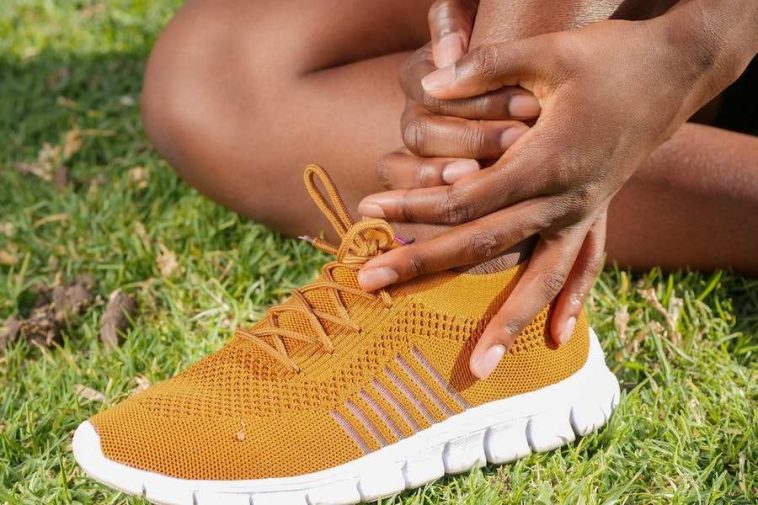Anxiety can often cause physical discomfort, including pain in the legs. This type of pain can range from a mild ache to a severe burning sensation and can interfere with everyday activities. It is important to understand the causes of leg pain related to anxiety in order to find solutions that can help alleviate the discomfort. Some of the possible causes of anxiety-related leg pain include poor circulation, muscle tension, and nerve damage. There are a variety of solutions that can help to reduce pain, such as relaxation techniques, exercise, and lifestyle changes. By understanding the causes and solutions for anxiety-related leg pain, you can take steps to reduce your discomfort and improve your overall quality of life.
Can Anxiety Cause Pain In Legs?
Yes, anxiety can cause pain in the legs. This type of pain is called psychogenic pain and is caused by the body’s stress response. When we experience anxiety, our body releases hormones to ready us for “fight or flight” mode. This causes a variety of physical symptoms, including tightening of the muscles. Tightening of the muscles in the legs can cause pain and discomfort.

Causes Of Anxiety-Related Leg Pain
- Poor Circulation: Anxiety can cause the blood vessels in your legs to constrict, which can lead to poor circulation. This can result in aching, cramping, and tingling sensations in your legs.
- Muscle Tension: Anxiety can cause the muscles in your legs to tense up, leading to pain and stiffness.
- Nerve Damage: Prolonged periods of stress and anxiety can lead to nerve damage, which can cause pain, numbness, and tingling sensations in your legs.
- Poor Posture: Anxiety can lead to poor posture, which can put a strain on the muscles and nerves in your legs and cause pain.
- Poor Diet: Eating a poor diet can lead to deficiencies that can contribute to anxiety-related leg pain.
- Dehydration: Not drinking enough water can cause dehydration, which can lead to pain and cramping in the legs.
- Medication Side Effects: Certain medications can cause side effects that can lead to leg pain.
Solutions To Anxiety-Related Leg Pain
- Relaxation Techniques: Relaxation techniques such as deep breathing, visualization, and progressive muscle relaxation can help to reduce stress and anxiety levels, which in turn can help to reduce leg pain.
- Exercise: Regular physical activity can help improve circulation and reduce tension in the muscles and nerves, which can help to relieve leg pain caused by anxiety.
- Lifestyle Changes: Making changes to your lifestyle, such as reducing caffeine intake, getting enough sleep, and managing stress levels, can also help to reduce anxiety-related leg pain.
- Medications: Various medications, such as anti-anxiety medications or muscle relaxants, may be prescribed by a doctor to provide relief from anxiety-related leg pain.
- Therapy: Cognitive-behavioral therapy or other forms of psychotherapy can help to address the underlying causes of anxiety-related leg pain and provide long-term relief.
Relaxation Techniques For Leg Pain
- Practice deep breathing exercises. This type of exercise helps to reduce tension and stress in the body, which can lead to improved circulation and reduced pain.
- Practice yoga or another form of relaxation meditation. These activities can help to reduce muscle tension and improve overall flexibility.
- Take a hot bath or shower. This type of bath can help to relax the muscles and relieve pain in the legs.
- Make use of analgesics as needed. Painkillers can provide temporary relief from leg pain related to anxiety. However, be aware that these medications can also have side effects, so it is important to speak with your doctor before taking them if you are experiencing significant discomfort.
- Get plenty of rest. In addition to reducing muscle tension and improving circulation, sleep is known to be a key factor in relieving pain in the legs.
- Manage stress levels. It is important to understand and address the sources of stress in your life if you want to reduce leg pain related to anxiety.
Exercise For Leg Pain Relief
- Start with a basic aerobic exercise routine. This type of exercise helps to improve your overall fitness and can help to reduce leg pain related to anxiety.
- Try a yoga or Pilates class. These classes focus on stretching and toning your muscles, which can help to reduce the tension in your legs and alleviate the pain caused by anxiety.
- Take a walk or bike ride. Getting outside and moving your body can help to improve circulation and reduce the symptoms of anxiety-related leg pain.
- Massage your legs. Apply pressure to the affected areas of your legs to help to relieve the pain.
- Drink plenty of fluids. Drinking fluids can help to improve circulation and reduce the symptoms of anxiety-related leg pain.
- Take pain medication as prescribed by your doctor. If the pain is severe, taking medication may be necessary to provide relief.
- Seek professional help. If the pain is severe and continues to be a problem, seeking professional help may be the best solution. A therapist or counselor can help you to understand and manage your anxiety symptoms, which may help to reduce the pain in your legs.
- Keep a journal. Keeping a journal can help you to track your progress and to identify any solutions that work best for you.
Lifestyle Changes To Reduce Leg Pain
- Exercise regularly. Exercise has been shown to be beneficial for overall well-being, including reducing anxiety symptoms. In addition to reducing leg pain, regular exercise can also improve circulation and help to reduce stress levels.
- Eat a healthy diet. Eating a healthy diet can help to reduce inflammation and improve overall circulation. Include plenty of fruits and vegetables, fiber-rich foods, and lean protein sources in your diet to help reduce leg pain.
- Relaxation techniques. Relaxation techniques can help to reduce stress levels and tension in the body, which can in turn lead to reduced leg pain. Techniques such as meditation and yoga can be helpful in reducing anxiety-related leg pain.
- Use pain relief medications as needed. If the pain is severe or persistent, it may be necessary to take medication to relieve the discomfort. Always consult with a doctor before taking any medications for this purpose.
- Seek professional help. If the pain is severe or constant, it may be necessary to seek professional help. A doctor can provide advice on lifestyle changes, medication options, and other treatment options.
Conclusion
Anxiety can often cause physical discomfort, including pain in the legs. This pain can range from a mild ache to a severe burning sensation and can interfere with everyday activities. It is essential to understand the causes of leg pain related to anxiety to find solutions that can help alleviate the discomfort. Some possible causes of anxiety-related leg pain include poor circulation, muscle tension, and nerve damage. There are a variety of solutions that can help to reduce pain, such as relaxation techniques, exercise, and lifestyle changes. By understanding the causes and solutions for anxiety-related leg pain, you can take steps to reduce your discomfort and improve your overall quality of life.





